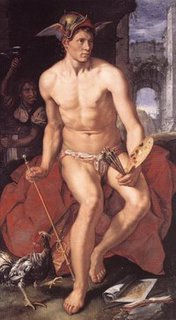Laissez-faire economists are often accused of "worshipping" market (or what can be called "equilibrium" in the present context, though the two are different) prices. But this is rather misleading. If I oppose murder, it's not because I worship other people's lives. Or, if I don't let my ten-year-old neighbor tinker with my car engine, it's not because I worship its current state. The former case is simply an implication of my views of justice, and the latter case follows from my knowledge that the car works fine right now, and my neighbor's tinkering will only mess it up.
Both aspects lie behind the (natural rights) libertarian's defense of freely floating market prices. On the one hand, if one believes in property rights, then it automatically follows that price controls are immoral. After all, a price control involves the government using its guns to prevent owners from swapping their property at a mutually agreeable price.
But beyond the issue of property rights, there is also the pragmatic aspect. Simply put, if the government sets the legal price below the market level, there will be a shortage; customers will want to buy more units of the good than suppliers will want to sell. There's no way around this: The equilibrium price is that which equates the quantity supplied with the quantity demanded. Left to its own devices, there is every reason to expect a market will tend toward the equilibrium price, although of course it will always be disrupted by changes in the data (supplies, tastes, etc.).
 Thus said, people to whom the phrase "free market" means something more than a political catch-phrase, are not worshippers at the temples of Hermes/Mercury nor the secular equivalent. They generally do not subscribe to inexplicable deus ex machina views on market operation, that somehow, someway an incorporeal entity will direct us mere humans to a higher, more satisfying plane of existence.
Thus said, people to whom the phrase "free market" means something more than a political catch-phrase, are not worshippers at the temples of Hermes/Mercury nor the secular equivalent. They generally do not subscribe to inexplicable deus ex machina views on market operation, that somehow, someway an incorporeal entity will direct us mere humans to a higher, more satisfying plane of existence.They may be in fact, scientists of the behavoral science of praxeology, to whom the study and understanding of the human behavior of action is paramount. If they must be said to worship something, it could only be their belief in the general goodness and cooperative nature of the human spirit.
As I've said elsewhere, those who are opposed to the free market are those who hold a dismal view of all of humanity, atrributing malicious and obnoxious behavior as the essense of the man's nature. Ironically, even if such nastiness was the case, the 'free market', which respects the autonomy of individuals would still be the optimal solution for humans of brutish callings. Unfortunately, this dog-eats-dog perception of humanity becomes their paranoid reality, something which I wouldn't wish upon an enemy (which somehow might rationalize his decision to damage my persons.)
As others have pointed out, if the justification for government is based upon the principle that people are naturally evil and dishonest, how could a political system run by individuals comprising of those same values elevate humanity to a better state? One merely needs to study history to see that the one common accomplishment of government has been to institute systematic coercion upon innocents, making their lives worse off in comparison to had the state never existed.




No comments:
Post a Comment